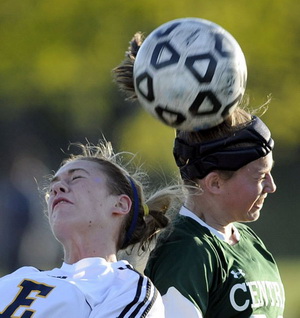Minors Should Be Protected By More Than Helmets
My husband introduced me to the original “Star Trek” series and movies and of course the character I most identify with is Mr. Spock.
His famous catch phrase is “Humans are illogical.”
 That’s an understatement – and as a psychiatrist I often see those who are far, far past illogical.
That’s an understatement – and as a psychiatrist I often see those who are far, far past illogical.
One of the topics I have frequently commented about is perhaps the most illogical of all – SPORTS.
It seems there is always a story in the news about sports injuries and deaths, and it is well established that professional sports ruins the lives of the athletes who perform and the cities that finance these bread-and-circus entertainments for their fans.
Yet, sports fans are like religious zealots – they just don’t care about the wreckage and carnage as long as they get to drink heavily and act irresponsibly.
It’s even more of a tragedy when the athletes are not professionals – they are children.
An injury sustained by a 17-year-old British lad while playing soccer put him into a 2-week coma. Some sophisticated surgeons in the United Kingdom performed a sophisticated kind of brain surgery — a bone cranioplasty, in which a fake skull is glued to his head — and they pulled him through.
But he was paralyzed on one side of his body and unable to speak.
Good news – he was able to return to soccer after aggressive rehab therapy.
He returned to play soccer again? He was warned that his delicate brain pan would not hold up if he got more rough contact – or even more gentle contact, like batting the ball with his head.
He was told that another blow to the head – even the supposedly gentle “headers” sustained frequently when playing soccer, even with the recommended plastic helmet protection — could cause death.
Yet he is excited about playing soccer again.
This is about where our comprehension stops.
Much in this story is not discussed. Could a teen, no matter how soccer crazy he is, make any kind of an informed consent about a risk of death against love of sport?
First, on the theoretical level, this is almost impossible to conceive. Few and far between are the teens who have enough knowledge about life to be competent to make life risking decisions. In our country it is legally called “emancipation” when a minor is given this capacity.
I have (rarely) recommended it in a judicial context. I can think of one case, someone in the rural Midwest who moved away from her grossly abusive parents and was living on her own at 16 as some kind of farmhand. I decided she could use all of the help she could get.
Speaking of parents, what was their feeling here, let alone the legal weight of such feelings and the resultant decisions? I don’t know anything about how they deal with this in the United Kingdom.
Me, I don’t think anyone in their teens knows enough about life as it unfolds before them to make a life-and-death decision. Anyone that age feels invulnerable.
“Heading” in soccer seems to be a relatively common move; this is the only argument presented in its favor.
Me, when I played soccer, both on a team at prep school and (many years later) on the French medical school neurosurgical staff team during my training, I felt this head thing was wrong. I mean, when I was a kid my mother of blessed memory would not let me ride a bicycle out of fear that I could fall and have an injury to my head and lose IQ points and diminish my ability to practice a profession.
Now I look back thinking it was a damned good call for a scientifically untrained mommie.
Of course, in soccer, the question never came up. I was never able to do a header even if I wanted to, for I could not get my head (indeed, I could not get any of my body) anyplace near where the ball was.
It seems to me we are dealing with some kind of traumatic brain injury (TBI). The fact each impact may be small in magnitude in no way compensates for the fact that in people who know how to play this game, this is a repeated injury.
When I landed in ICU with metabolic problems that could have killed me, I did not wait for research on metabolism or enzymes or such.
I simply decided I had to figure out a way to lose weight to stay alive — and I did. Other positive side effects (lower blood sugar, blood pressure, triglycerides, etc.) were an incidental. Don’t risk the brains and the lives of our young people by waiting around for research that might correct TBI and get them back to “normal.”
Stop competitive sports now.
One life lost is in one life too much.
Especially if it is an underage person who does not yet know what life is.
Filed under Brain Damage by admin on Dec 14th, 2011. ![]()
Leave a Comment